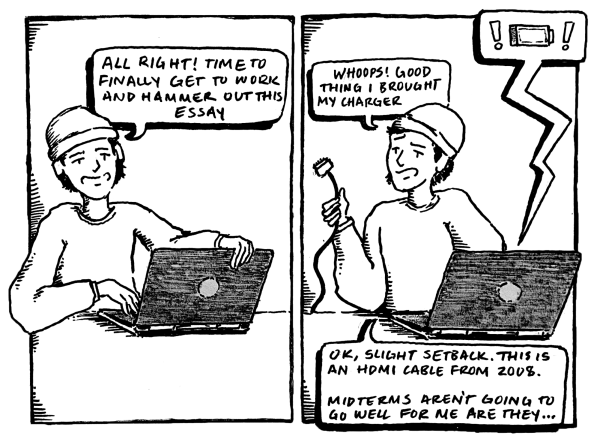My Experience Relying on Mutual Aid
Recently, my financial troubles have been the most consistent and substantial barrier to my happiness. Since my second year, I’ve worked multiple jobs at a time, which takes quite a toll. Unfortunately, a big chunk of my earnings goes toward tuition, and another goes toward helping my family. Due to the low pay of most on-campus jobs, I’m generally not left with much money at the end of the redistribution.
Resources from the school only help so much. The Coronavirus Aid, Relief, and Economic Security Act is a tremendous resource that gives grants of up to $1,200. I give at least half of whatever Oberlin awards me back to my household, and I save receipts so that my family and I can use funds from ObieCares for gas and food reimbursement. When the Coronavirus Oberlin Mutual Aid Fund was still providing grants, I filled out any available applications.
I’ve done nearly everything I can to improve the financial situation of myself and those close to me. However, it’s highly demoralizing to be unable to escape poverty no matter how many resources are available. It certainly makes resilience harder. I have it rough, but I cannot imagine how others manage to survive without easy access to necessities like food or water.
Despite all my work, for a long time I blamed myself for somehow not doing enough, even though the complete opposite was true. That changed when the pandemic happened, and I began to see many others online in similar or worse situations, pleading for help. Seeing these mutual aid requests reassured me that my situation was a symptom of a systemic issue that I cannot fix individually. Poverty is a pandemic in itself that does just as much — if not more — damage than COVID-19. Beyond that, the renewed awareness of mass poverty lit a fire in me to learn and to help others. I began sharing these posts for mutual aid on any social media platform I had available. I didn’t have a big following on all of my accounts, but that didn’t matter. Any press is good if at least one person donates or shares the post. However, even with a solid network and presence on social media, trying to raise money is no easy task.
I found this out the hard way when I had to make a GoFundMe on behalf of my family. Both of our vehicles had something wrong with them at the time, and we didn’t have enough money to fix them. I thought we had more time to repair them — until our van began malfunctioning on the way home from getting groceries. Once that happened, I turned to my peers and utilized social media, hoping I’d find some kind of solution. I posted a lengthy summary of what was wrong with each of the vehicles and the estimated price to fix them. Thankfully, the post garnered a generally positive response, which resulted in many shares and donations. We were able to use the funds acquired from the GoFundMe to get the necessary parts installed. I’m happy that people came through for my family and me in our time of need, but this outcome did not come without difficulties.
For instance, I had to learn the pros and cons of each crowdfunding platform. GoFundMe is a valuable platform, but it also takes a portion of each donation, unlike other platforms that typically take a percentage of total funds whenever anyone transfers them to a bank account. Cash App, PayPal, and Venmo all follow this model, and they are better because of it. GoFundMe is also flawed since the money can take several days or more to be processed, which can be inconvenient for late fees. This entire experience has renewed my respect for people who devote their lives to mutual aid and wealth redistribution. I’ve done a lot for myself and my family, and I’ve even shared and donated to other campaigns in recent months. However, I do not think that I could do this full-time without a break or the means to support myself comfortably. Organizations such as COMA and the Oberlin People’s Assembly have nothing but my respect for providing for students and community members in need.
Maybe I’ll change my mind in a few years, but as of now, I cannot make mutual aid more than something I partake in whenever I happen to see a post. I may not be able to do much, but I’d like to help someone with the bit of influence I have from writing for the Review. I recommend that anyone with the means — especially those at Oberlin — start doing more. Don’t just scroll past the mutual aid posts you see on Instagram or Twitter. Share any posts you see and try not to doubt people with the courage to plead for money when they have exhausted all their other options. If poor people didn’t have to pass around the same $20, we could all put our energy and newfound resources toward making the world better. Until that day comes, I’ll continue to repost mutual aid requests and donate when I can.
If anyone can donate towards my own needs to fix my family’s vehicles, we take donations in CashApp ($ReggieTheG), Venmo (@RichGoudeau), and PayPal (@oleschool99).


